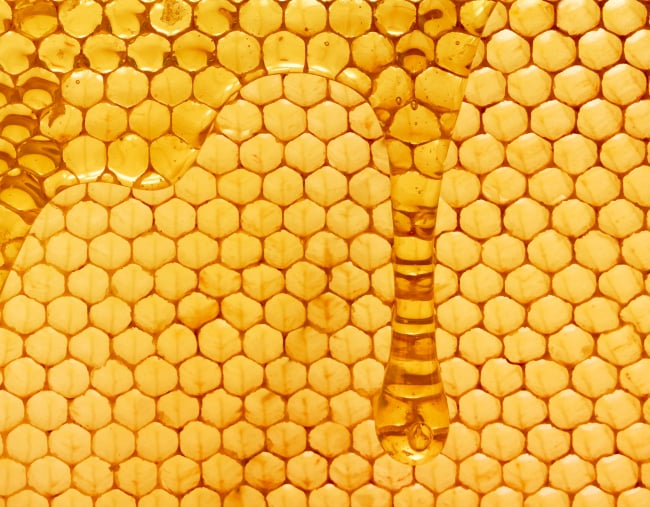
Honey is a delicious, sweet and natural food full of nutritional value, so at face value it seems like a valuable addition to your child’s diet.
But did you know you shouldn’t feed it to babies?
Mamamia spoke to paediatric and women’s health dietitian Kathleen Halliday to find out why.
Why shouldn’t babies eat honey?
Honey may contain spores called clostridium botulinum that can germinate in a baby’s digestive system and cause botulism, a rare but serious illness that can cause paralysis.
Kathleen explains it is caused by nerve toxins made by bacteria and can result from eating foods that contain this toxin-producing bacteria.
“Infant botulism occurs when an infant ingests the spores of the botulinum bacteria that grow in the intestine and produce the toxin,” she explains. “The spores can be found in dust and soil, and raw honey has been shown to cause infant botulism.”
Older children and adults are not usually affected because they have natural defences in the gut, but babies under 12 months do not have this.
What are the symptoms of botulism?
Kathleen says the symptoms of infant botulism include “constipation, loss of appetite, weak suck, weak cry and muscle weakness including poor head control”.
If your baby shows any of these symptoms, see a doctor immediately.
At what age is honey considered ‘safe’ for children?
Paediatricians and dietitians recommend avoiding giving honey to babies less than 12 months of age as well as taking care when preparing, handing and storing solid foods for babies.




























































































